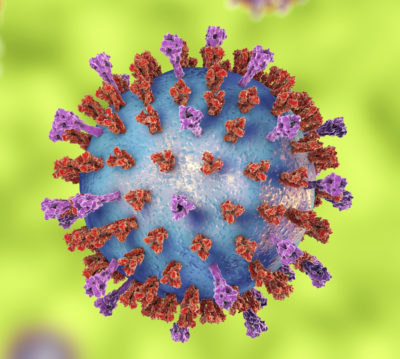As COVID-19 fades into the background a bit, a well-known virus called RSV is stepping into the spotlight.
RSV (Respiratory Syncytial Virus) is a longstanding virus in our community. In fact, RSV infections are the No. 1 cause of infant hospitalizations in the U.S. and most children contract the virus before age 2.1
RSV is super contagious and is spread through respiratory droplets and by touching surfaces with the virus on it. RSV infects children’s nasal passages and lower lungs, causing them to develop cold-like symptoms (such as a cough, a runny nose, a fever, and poor feeding), and at times, trouble breathing. Some kids infected with RSV develop “RSV bronchiolitis” (inflammation of the small airways) or “RSV pneumonia” (a lung infection). Kids under 2 years of age are particularly vulnerable to RSV infections because of their small airways. Those who are immunocompromised or who have lung or heart problems are especially at risk.
Insider Info: Unlike the common cold, RSV tends to get worse on Day 4 or 5 of the illness. If your child spikes a new fever, develops trouble breathing, or begins to feed poorly after having a cold for a few days, think about an RSV infection and call your child’s doctor ASAP (or 911, if you’re particularly worried).
What’s Causing the RSV Surge This Fall?
Although RSV is nothing new, it’s been held at bay over the past few years because of the precautions that we’ve been taking with COVID-19 (think: masking, good handwashing, and social distancing). Now that we’ve ditched our masks and resumed socializing, we’re seeing a resurgence of RSV (and earlier in the season than expected).2 Moreover, many young children who were born during COVID-19 have never been exposed to RSV and, therefore, haven’t built up any immunity against it. As a result, these kids are getting hit harder by the RSV virus and overwhelming many of our pediatric hospitals and ERs.3
Some Good News & a Reality Check: Even though a lot of kids are getting RSV now, most of them are bouncing back from it pretty well, even those who required more advanced care (think: assistance with breathing) in the hospital.4 Plus, RSV bronchiolitis is an illness that doctors are well-versed in managing. Still, RSV virus can be severe (even life-threatening), so it’s not something that parents or doctors want to mess around with. If you’re concerned that your child has RSV, seek help first and ask questions later.
Get Wise(r) About RSV and What Precautions You Can Take to Protect Your Child Against It.
In Addition, Learn About Which Kids are Eligible for Synagis (A Series of Antibody-Containing Shots That Protect Our Particularly Vulnerable Kids Against RSV) and When an RSV Vaccine Might Hit the Market (Spoiler Alert: It Won’t Be Until Next Year).





